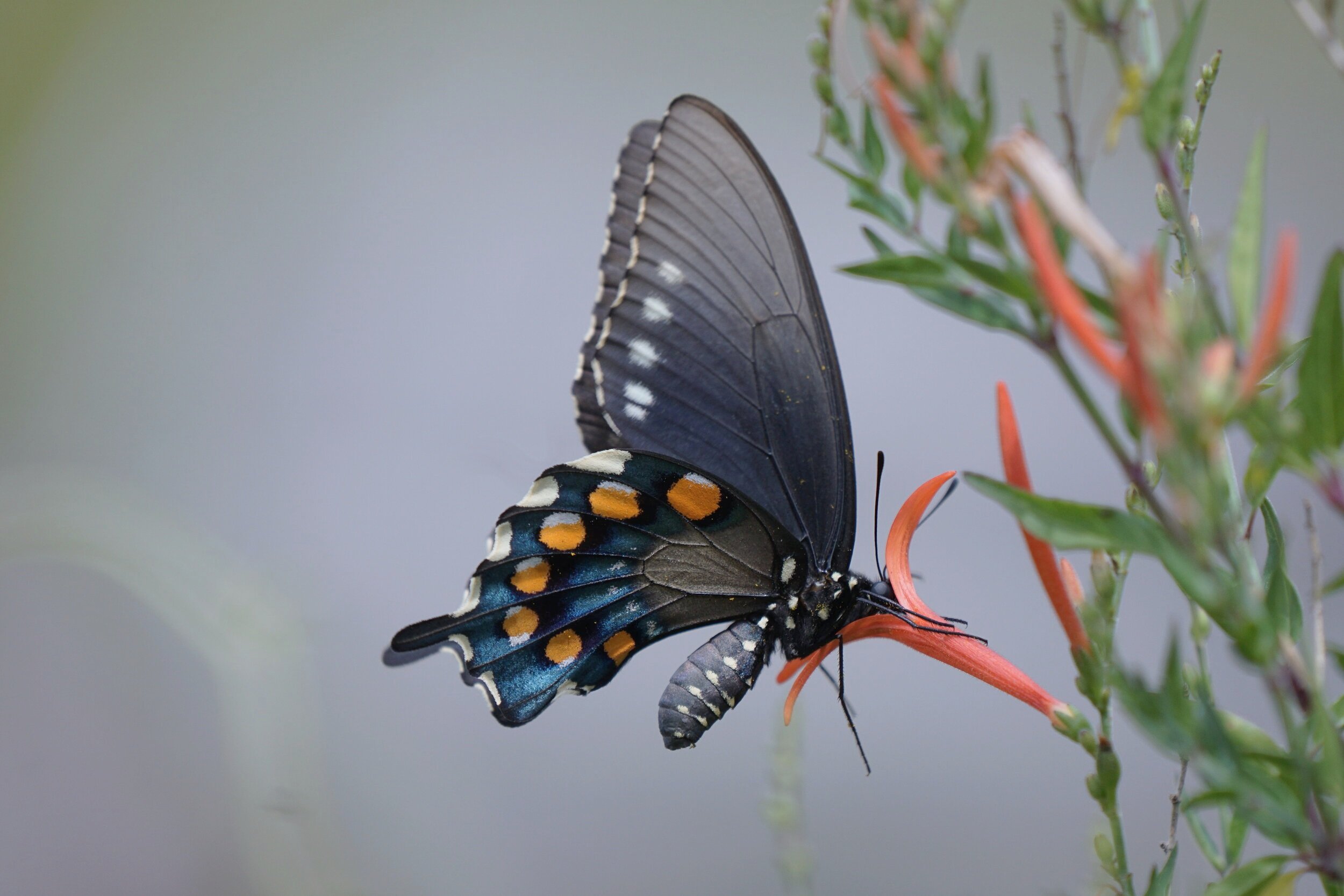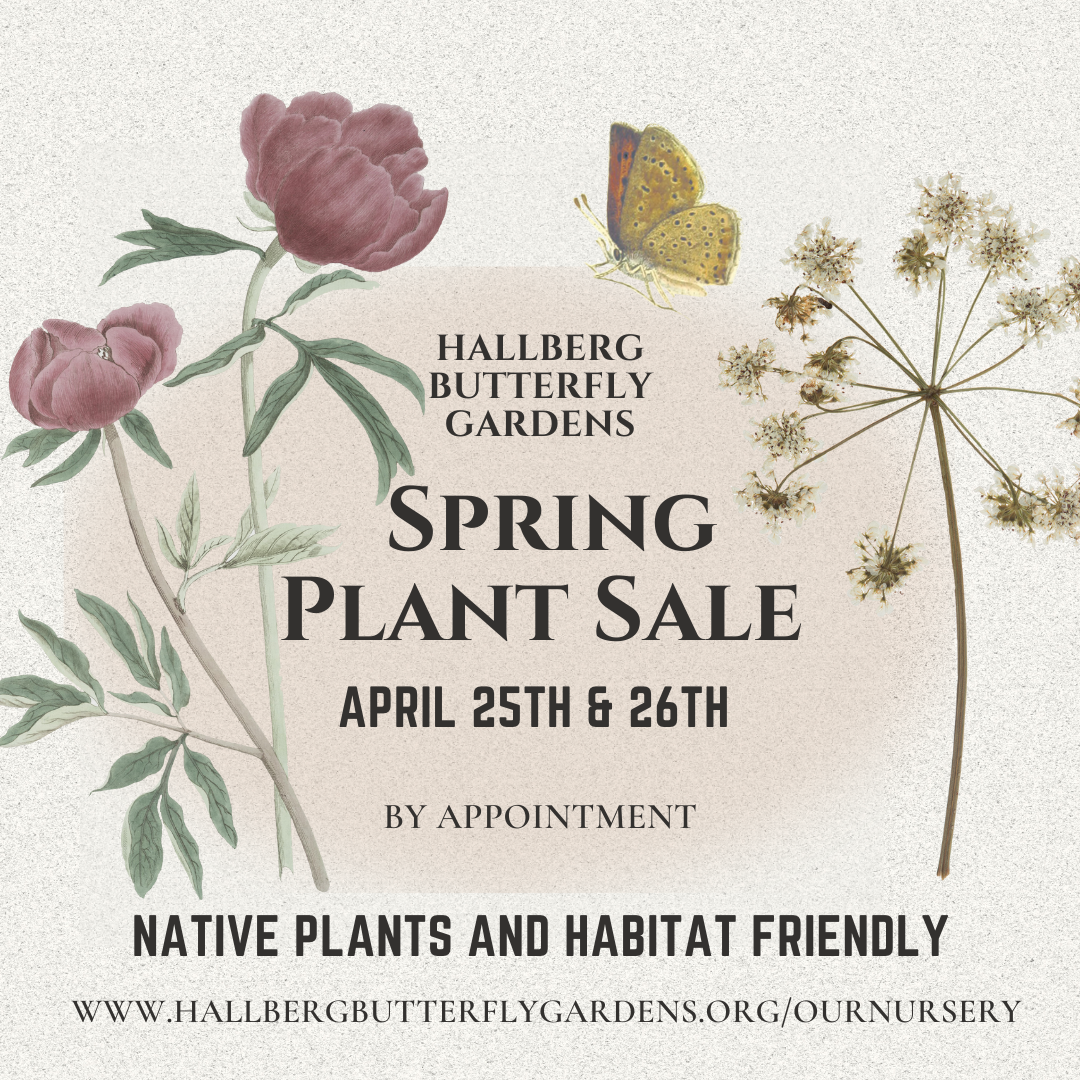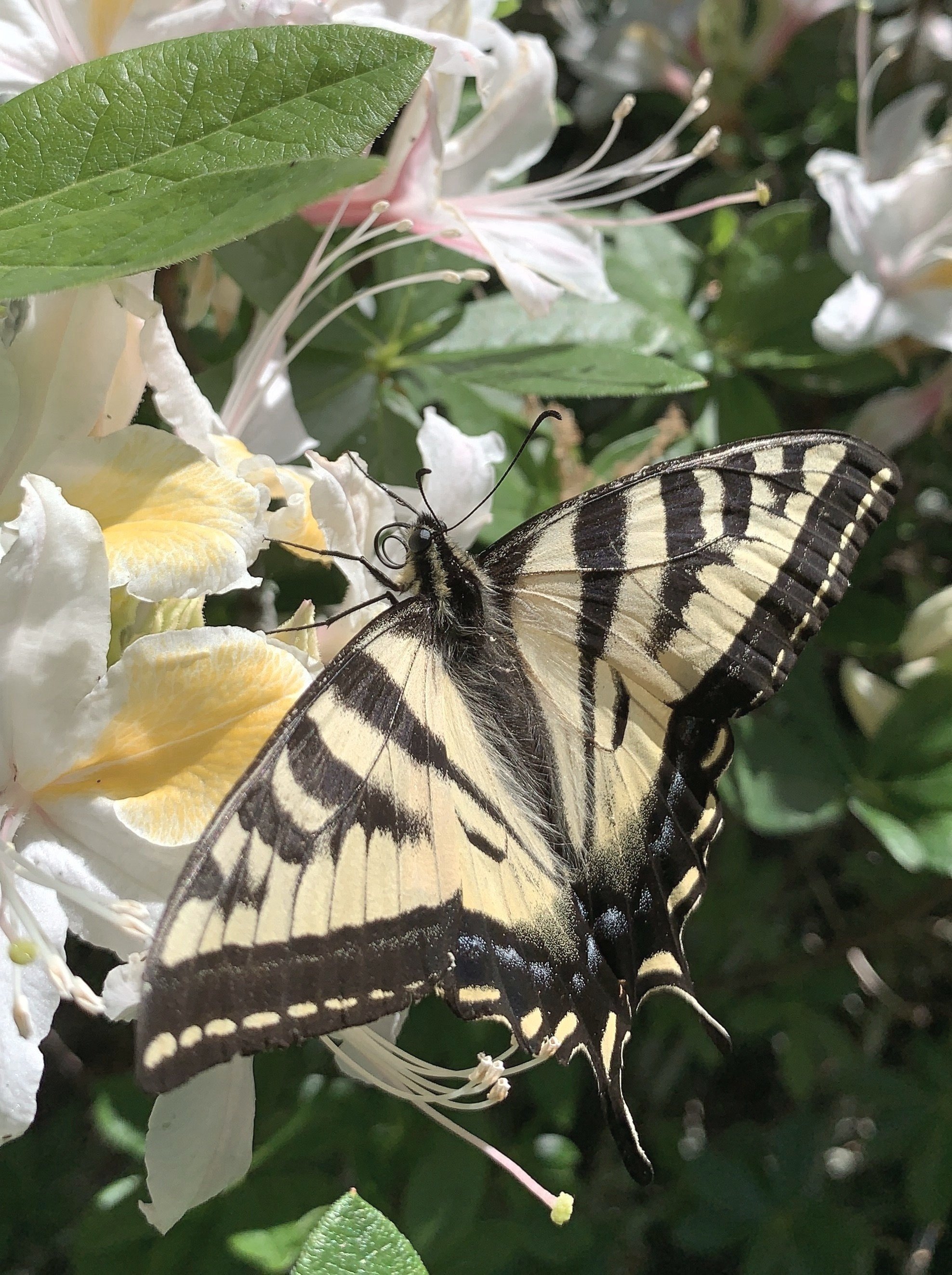
Sonoma County’s Oldest Butterfly Garden
Maintaining local wildlife habitat is one of the best ways we can support our community.
Welcome to Hallberg Butterfly Gardens
Nestled among the apple orchards of Western Sonoma County, our Gardens cover nine acres of overgrown vines, thickets, flowering pathways, and meadows.
We are a wildlife sanctuary and demonstration garden with a focus on Lepidoptera (moths & butterflies) and other pollinators (bees, beetles, wasps, flies). Hallberg Butterfly Gardens is a nonprofit 501(c)(3) organization.
Why Support Butterflies?
Butterflies and moths are insects belonging to a scientific group named Lepidoptera. Understanding butterflies can help us support our local wildlife because Lepidoptera provide critical functions within their ecosystem. Habitat loss greatly threatens native butterfly species and many other animals. To date, more than 54 varieties of butterflies are listed in Hallberg Butterfly Gardens observation records. Please visit our Butterfly Information page to learn more about the butterfly life cycle and their activity in the Gardens.
Garden Services.
The Gardens are open to the public by appointment from April to October (garden workdays continue year-round). We support environmental awareness by offering tours, events, plant sales, workshops, garden workdays, and educational resources! Our hours of operation vary depending on the type of appointment.
Browse our “Plan A Visit” menu option above to learn more and book an appointment that’s right for you!
What is the Best Time to See The Butterflies?
View Current Butterfly Activity
The large swallowtail butterflies are commonly at peak activity during spring, making April to June the most popular months to visit. The weather, season, and time of day all play a role in guessing what activity to expect. The species and number of butterflies in flight constantly fluctuate! Please visit our Butterfly Information page to plan your visit relating to butterfly behavior and enhance your experience!
¿Necesita ayuda para reservar una cita? Correo electrónico - garden.hallberg@gmail.com
Make a donation.
Our long-term future depends on our community and its generous contributions.
Donations allow us to:
Educate local schoolchildren.
Offer free and low-cost tours, resources, classes, & events.
Develop & maintain a rich habitat for pollinators & local wildlife.

